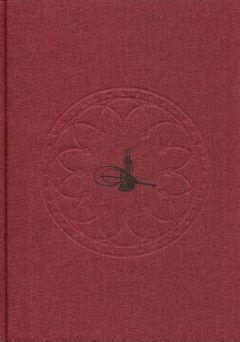Najtaniej kupisz w TANTIS.PL
24.49 zł36.00 zł
32% taniej
24.49 zł
Przewiń aby zobaczyć więcej cen.

Essays in the History of Languages and Linguistics
Barbara Podolak, Michał Nemeth, Urban Mateusz
ISBN:
9788376388618
Ilość stron:
951
Wydawnictwo:
Księgarnia Akademicka
Rok wydania:
2017
Oprawa:
Twarda
Cena katalogowa:
36.00 zł
Książkę najtaniej kupisz w księgarni TANTIS.PL
| TANTIS.PL | 24.49 zł | do sklepu |
| Możliwy odbiór osobisty. Punkt odbioru: Bielsko-Biała | ||
| DADADA.PL | 28.70 zł | do sklepu |
| Możliwy odbiór osobisty. Łódź (koszt 5.99 zł) | ||
| TANIAKSIAZKA.PL | 29.49 zł | do sklepu |
| Możliwy odbiór osobisty. Osobiście można odebrać zamówienia powyżej 24,99 zł. Dla zamówień 24,99 - 98,99 koszt 4,90 zł. Zakupy powyżej 99 zł koszt 0 zł. Punkty odbioru: Białystok, Bielsko-Biała, Częstochowa, Ełk, Gdańsk, Gdynia, Grajewo, Katowice, Kielce, Kraków, Lublin, Łomża, Łódź, Piotrków Trybunalski, Poznań, Przemyśl, Rzeszów, Suwałki, Szczecin, Świdnica, Toruń, Warszawa, Wrocław, Zabrze, Zielona Góra, Zielonka |
||
| BOOKTIME.PL | 30.19 zł | do sklepu |
| Tylko wysyłkowo. | ||
| PASKARZ.PL | 30.66 zł | do sklepu |
| Możliwy odbiór osobisty. Zamówienia do 24,99 zł koszt odbioru 4,99 zł. Zamówienia do 59,99 zł koszt odbioru 2,99 zł. Zamówienia od 60zł koszt odbioru 0 zł. Punkty odbioru zamówień: Kraków, Białystok, Gdańsk, Częstochowa, Kłaj, Lublin, Łódź, Poznań, Radom, Wrocław, Opole, Wieliczka, Warszawa |
||
| MATRAS.PL | 31.66 zł | do sklepu |
| Możliwy odbiór osobisty. Zamówienia do 24,99 zł koszt odbioru 4,99 zł. Zamówienia do 59,99 zł koszt odbioru 2,99 zł. Zamówienia od 60zł koszt odbioru 0 zł. Punkty odbioru: Białystok, Katowice, Kraków, Gdańsk, Łódź, Warszawa, Wrocław, Poznań, Częstochowa, Lublin, Opole, Kłaj |
||
| CZYTAM.PL | 32.00 zł | do sklepu |
| Tylko wysyłkowo. | ||
Many of those who will read these pages are fully aware of Marek Stachowski's scholarly achievements up to the present. How ver professorsatile and appreciated an author he has been is illustrated quite perfectly by the table of contents of the present tome. Indeed, Professor Stachowski is commonly regarded as a Turkologist whose varied academic career has been marked by a consistent approach to linguistic analysis: utilising historical-linguistic and philological methods while at the same time paying special attention to the historical background, cultural context, chronology, and the geography of linguistic contacts. Certainly, Marek Stachowski has helped broaden our knowledge of the history of Turkic languages and improve the methodology bequeathed to us by earlier generations. Additionally, however, thanks to his broad interdisciplinary approach combining the experience and knowledge of a Turkologist with, primarily, the expertise of Uralists, Slavicists, Arabists, Iranists, Mongolists, and specialists in Yeniseic, Carpathian and Balkan studies Marek Stachowski has been able to address issues lying beyond his main field of expertise. In fact, during his career he has highlighted just how relevant Turkology is to these research areas and, just as importantly, how much Turkology has been enriched by them. Thus, it would perhaps not be amiss to say that the central theme of his work has been its wide-ranging, multifaceted outlook
